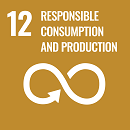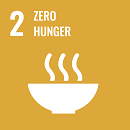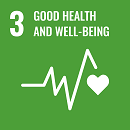MEGAPROJECT: SIMPLIFYING SUSTAINABLE LIVING
FOCUS AREA: GREEN CONSUMPTION
CHALLENGE: EAT sustainably
CHALLENGE DESCRIPTION:
This challenge is about motivating consumers to eat sustainable foods. Sustainability of foods can be many things. It can relate to:
- Production: E.g., consumption of water, CO2 emission, ecology, nutrients etc. How can the production of food be optimized in terms of sustainability, and which initiatives are necessary to that aim?
- From farm to fork: Is the procurement of foods sustainable, and how can it be made so? What does transport mean for food sustainability? Are locally produced foods the way to go? Locally produced foods have many benefits in relation to green consumption as the foods for example do not have to be transported over great distances and consumers support local producers. However, today it is a challenge (sometimes impossible) for the consumers to work out which products are produced locally, which are produced nationally or internationally, where one can buy these products and what effect it has in terms of sustainability to buy local products.
- Ecology: Is ecological food equal to sustainable food? How can ecology be measured in terms of sustainability? And is the focus on ecology in the current society justified?
- Vegetarianism: Research shows that meat is one of the biggest climate culprits. Therefore, vegetarianism is high on the agenda. But is vegetarianism necessarily sustainable? Is there a way to make it more so? And which initiatives are needed to make people eat less or no meat at all?
There are many implications when looking at eating sustainably. This challenge seeks to explore new ways of producing, procuring and handling foods sustainably. Both in relation to the technical aspects but also in terms of culture and communication. How do we eat sustainably?
NB: This challenge has formerly run under the title “Eat Locally”. It has been changed due to a need to broaden the view on what sustainable food is. This also means, that a number of the proposed project problems relates to this aspect. Please don’t feel limited to only exploring this avenue.
IMPACTED SDGS:



PROPOSED PROJECT PROBLEMS:
- Aalborg municipality: In the forthcoming Sustainability Strategy for the period 2020-2024, Aalborg Municipality has the three following ambitions:
- 60 % organics by 2021 in all of the municipality’s kitchens, canteens and self-governing institutions and from that point the % must annually grow. Basic foods (dairy products, grains, fresh fruits and vegetables) must be 100 % organic by 2023.
- Food waste from the municipality's large kitchens, canteens and institutions must be reduced to less than 5% by weight by the end of 2024, compared to 2020.
- Reducing the climate impact on food purchases by 25% by the end of 2024
These ambitions will have different practical implications. The municipality is interested in knowledge about: Which challenges will the municipality’s kitchens, canteens and self-governing institutions face in trying to reach these ambitions? How to solve the dilemma of wanting both organic foods and reducing the climate impact of food? (in the cases that we cannot find enough organics in the region – Local vs. organics (and possibly longer transport?), How to reduce food waste but also packaging (plastic that prolongs food shelf life)? How to push climate-friendly foods in the municipality? (In particular, the idea of introducing less meat – combined with the nutritional counterarguments of doing so…), and how to disconnect economic arguments from choosing organics (in public procurement)?
The municipality canteens are available for collaboration by appointment with challenge proposer Søren Lindhardt
- How can insight into the creation of information and communication support the development off awareness and knowledge concerning climate crises and how can this insight support the challenge Eat Sustainably?
- How can understanding of language and sense making support producers, services and customers in the creation of a higher public awareness about sustainable food production and consumption?
- How can studies on consumers knowledge and decision making in relation to food consumption in everyday life situations support the challenge Eat Sustainably?
- What types of social and psychologically barriers exist when consumer’s make up their mind on environmental problems and how can this knowledge help to motivate producers and consumers to support the challenge Eat Sustainably?
- What kind of information and communication support learning processes in relation to climate crises and environmental problems in order to raise social and politically awareness and mobilise producers, services and customers to act accordingly to the challenge Eat Sustainably?
- The ethics of eating locally produced foods: Is eating locally morally right?
- The philosophy of locality – what are the meaningful boundaries of the concept ‘locally’?
CHALLENGE PROPOSER:
Søren Lindhardt
Communication and psychology
linhart@hum.aau.dk
Aalborg municipality canteens
CO-PROPOSERS:
Jes Lynning Harfeld
Culture and learning
jlh@learning.aau.dk
Dan Kristian Kristensen
Planning
dankristian@plan.aau.dk
Mikael B. Skov
Computer Science
dubois@cs.aau.dk
